Sacrifice, Surrender and Submission to Divine Will
Sacrifice includes both the offering of animals and one’s life in the way of Allah, as well as the internal sacrifice of desires, submitting fully to the will of Allah. The Quran describes sacrifice as a test of faith, where patience during hardships is rewarded with closeness to the Divine.
Prophet Ibrahim’s willingness to sacrifice his son Ismail is a prime example of surrender to Allah’s will. Ismail’s acceptance of this fate further demonstrates unwavering submission. Their obedience made this event a timeless example of faith. Similarly, Prophet Mohammad’s experience at Taif illustrates the Prophet’s deep patience and surrender, as he prayed for the people’s wellbeing even after being attacked.
The sacrifices of the Prophet’s Companions reflect their devotion and submission. Abu Bakr Siddiq supported the Prophet through both belief and action, notably during the Prophet’s journey to Madina where he shielded the Prophet from harm. His complete trust in Allah, such as during the Battle of Tabuk, earned him Divine approval.
Bilal ibn Rabah’s endurance of torture while proclaiming the oneness of Allah illustrates immense spiritual resilience. Uthman ibn Affan demonstrated financial sacrifice, notably when he bought and gifted a well to the Muslims. Ali ibn Abi Talib’s bravery and obedience, including sleeping in the Prophet’s bed during a life-threatening situation and his defence during the Battle of Uhud, reflect his sincere love and submission.
Ziyad bin Sakan’s ultimate sacrifice during the Battle of Uhud, where he gave his life defending the Prophet, exemplifies total devotion. Likewise, Umm-e-Ammarah’s active defence of the Prophet and the wounds she sustained reflect her unshakable loyalty.
Imam Hussain’s sacrifice in Karbala stands as the greatest example of surrender and submission to Divine will. Despite facing overwhelming odds, thirst, and the martyrdom of his family and companions, Imam Hussain remained steadfast, choosing to uphold Divine will rather than use his spiritual powers. This sacrifice earned him the title “Imam ul Shuhada.” Sultan Bahoo’s poetry highlights Imam Hussain’s unwavering love and refusal to reveal Divine secrets even in the face of death.
When a seeker begins the spiritual journey, the Self gradually elevates and reaches the level of Self at Peace where the seeker, through sacrifice and spiritual purification, becomes entirely content with Allah’s will. The Quran describes such a person as one who is welcomed back by Allah with pleasure. This station is only reached under the guidance of a Perfect Spiritual Guide.
Sultan-ul-Ashiqeen Sultan Mohammad Najib-ur-Rehman is the current Universal Divine Man who helps seekers attain spiritual purification through the invocation and contemplation of Ism-e-Allah Zaat. Through spiritual guidance and striving against the self, seekers learn to love Allah’s will, progressing through spiritual stages until they reach contentment and Divine vision.
There are several types of sacrifice. The sacrificing of animals and sacrificing one’s life in the way of Allah is also a type of sacrifice. The sacrifice of the soul refers to abandoning unnecessary desires and submitting to the will of Allah. Allah has called sacrifice a test in Quran. Those who succeed in this test, attain the spiritual rank of surrender and submission to Divine will. Allah says in Quran:
وَ لَنَبْلُوَنَّكُمْ بِشَیْءٍ مِّنَ الْخَوْفِ وَ الْجُوْعِ وَ نَقْصٍ مِّنَ الْاَمْوَالِ وَ الْاَنْفُسِ وَ الثَّمَرٰتِ ؕ وَ بَشِّرِ الصّٰبِرِیْنَۙ
Meaning: And We will most certainly test you somewhat by means of fear and hunger and certain loss of wealth and lives and fruits. And, (O Beloved,) give glad tidings to those who observe patience. (2: 155)
الَّذِیْنَ اِذَاۤ اَصَابَتْهُمْ مُّصِیْبَةٌ ۙ قَالُوْۤا اِنَّا لِلّٰهِ وَ اِنَّاۤ اِلَیْهِ رٰجِعُوْنَؕ
Meaning: (They are the ones) who, when afflicted with some distress, say: ‘Indeed, to Allah we belong and to Him we shall return.’ (2: 156)
True Divine seekers are those who entrust themselves to Allah completely. They prioritise the will of Allah over theirs. Allah says in Quran:
وَ مِنَ النَّاسِ مَنْ یَّشْرِیْ نَفْسَهُ ابْتِغَآءَ مَرْضَاتِ اللّٰهِ ؕ وَ اللّٰهُ رَءُوْفٌۢ بِالْعِبَادِ
Meaning: And (on the contrary) amongst people there is also someone who sells even his life to attain the pleasure of Allah. And Allah is Most Kind to the servants. (2: 207)
Prophet Ibrahim and Prophet Ismail’s Sacrifice
Sacrifice, surrender and submission to Divine will is the sunna of the prophets. The sacrifice of Prophet Ismael teaches us to submit to Divine will.
Quran describes this incident as:
فَلَمَّا بَلَغَ مَعَهُ السَّعْیَ قَالَ یٰبُنَیَّ اِنِّیْۤ اَرٰی فِی الْمَنَامِ اَنِّیْۤ اَذْبَحُكَ فَانْظُرْ مَا ذَا تَرٰی ؕ قَالَ یٰۤاَبَتِ افْعَلْ مَا تُؤْمَرُ ؗ سَتَجِدُنِیْۤ اِنْ شَآءَ اللّٰهُ مِنَ الصّٰبِرِیْنَ فَلَمَّاۤ اَسْلَمَا وَ تَلَّهٗ لِلْجَبِیْنِۚ
Meaning: Then when (Ismail [Ishmael]) reached (the age of) the ability to run about with him, Ibrahim (Abraham) said: ‘O my son, I have seen in a dream that I am sacrificing you. So think, what is your opinion?’ Ismail said: ‘O my father, do that (immediately) which you are being commanded. If Allah wills, you will find me amongst the patient (and steadfast).’ So, when both submitted (to the will of Allah), and Ibrahim laid him down on his forehead. (37: 102, 103)
Allah Almighty sent Prophet Mohammad (pbuh) from the generation of prophet Ismael. That’s why surrender and submission is a special sunna of Mohammadan umma. That is, Allah passes His every beloved servant through difficulties and hardships so that they may become an embodiment of surrender and submission. If we look at the incident of Taif where Prophet Mohammad (pbuh) went to convey the message of truth to those people. Instead of welcoming him, they pelted stones at the Holy Prophet until his shoes were filled with blood. The Holy Prophet’s patience was exemplary, Angel Gabriel descended and informed the Holy Prophet that if he wished, Allah would wipe out the whole valley of Taif for what they had done to him. Yet, the Holy Prophet prayed for their wellbeing instead of asking for Allah’s torment on them.

Sacrifices of the Companions of Prophet Mohammad
If we review the lives of the Companions of Prophet Mohammad, it is hard to find example of the sacrifices they made in the way of Allah anywhere else. Whether it is financial sacrifice, physical jihad or migration, in every case, they stood by the Prophet. Abu Bakr Siddiq is the true Companion of the Holy Prophet, he was the first to accept Islam. He faced lot of difficulties in the way of Allah. When the Holy Prophet returned from Miraj, Abu Bakr was the first to believe in it. Allah liked his surrender and submission to Divine will.
On the occasion of Battle of Tabuk, the Prophet asked all the Companions to contribute financially. Upon this, Umar ibn al-Khattab presented half his belongs. When the Holy Prophet asked Abu Bakr what he had left for his family. He responded, “Allah and His Messenger”. Upon this, angle Gabriel came to the Prophet and said that Allah is pleased with Abu Bakr as he is pleased with Allah.
Snake Bite in the Cave of Hira
Another incident of Abu Bakr which gives him superiority over other Companions is the migration from Makkah to Madina. When Abu Bakr Siddiq (RA) and the Holy Prophet (pbuh) reached the cave of Hira, Abu Bakr entered the cave first to check. He cleaned it and closed all the holes so that no harmful animal or inspect could enter the cave whilst the Holy Prophet was there. A last hole was left for which he had nothing to cover it, Abu Bakr covered that hole with his heel. Then he called the Holy Prophet to come in. After a while, the Holy Prophet rested his head on Abu Bakr’s thigh and fell asleep.
That in fact was a snake hole which Abu Bakr covered with his foot. Whilst the Holy Prophet was asleep, the snake bit Abu Bakr Siddiq on the foot. Despite extreme pain, he did not move or make any noise just not to disturb Holy Prophet’s sleep. When pain got unbearable, tears fell from his eye that fell on the blessed face of the Holy Prophet and he woke up. When the Holy Prophet enquired, Abu Bakr explained the situation. Upon this, the Holy Prophet applied his saliva on the affected area, which immediately took away the pain.
Sacrifice of Bilal ibn Rabah
Bilal ibn Rabah (RA) is that Companion of the Holy Prophet (pbuh) who has the privilege of being amongst those Companions who embraced Islam first. In such a hostile environment when someone embraced Islam, they faced lot of hardships. Bilal’s master also gave him severe punishments. He used to lay him on hot sand and put a heavy rock on his chest. He faced all these hardships. The only word he uttered was ‘Ahad’ (God is one) to demonstrate his unwavering faith.
Sacrifice of Uthman ibn Affan
Uthman ibn Affan provided a lot of financial support for the cause of Allah. He spent his wealth generously for the wellbeing of Muslims, especially he contributed immensely during the various battles in the early days of Islam.
Muslims faced severe water shortage in Madina. To address this issue, Uthman ibn Affan (RA) paid 30,000 Dirhams to purchase a well named ‘Ruma’ from a Jew and gifted it to the Muslims. His title ‘Ghani’ was due to his generosity.
Sacrifice of Ali ibn Abi Talib
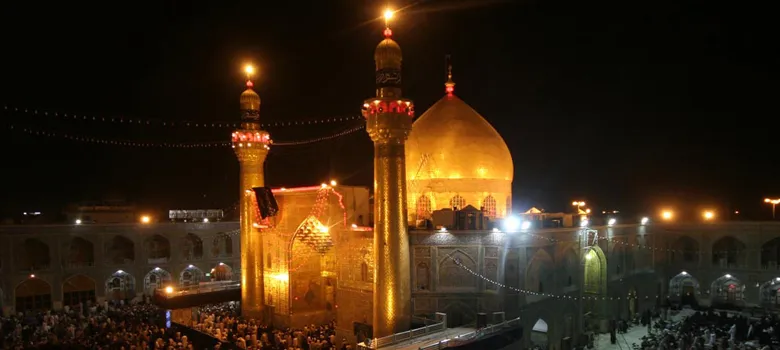
Ali ibn Abi Talib (RA) is also among the sincere lovers of the Holy Prophet (pbuh) who never hesitated to sacrifice anything for him. The night before migration to Madina, the Makkans planned to slay the Holy Prophet (pbuh). The Holy Prophet ordered Ali ibn Abi Talib to sleep in his bed that night. The Holy Prophet handed over the belongings of people that they had kept with the Holy Prophet before setting off for Madina. Ali ibn Talib followed the command of the Holy Prophet, he slept on his bed that night despite the dangers to his life, returned the belongs to their owners the following day and then migrated to Madina.
During the Battle of Uhud, the Muslims lost a winning war. Some of the enemies advanced towards the Holy Prophet. Ali ibn Abi Talib defended the Holy Prophet very bravely.
Sacrifice of Ziyad bin Sakan
There are many narrations of the sacrifices the Companions made for their beloved (Prophet Mohammad – pbuh). It is written that when during the Battle of Uhud, a group of the enemy surrounded the Holy Prophet, he addressed the Companions and said who will lay down his life for me. Ziyad bin Sakan (RA) earned the honour of being gravely wounded in this defence. As he lay dying, the Holy Prophet ordered that his body be brought close. When the Companions carried him over, a spark of life still remained. He dragged himself on the ground and placed his face at the feet of the Beloved of Allah and in that very state, his soul departed.
تیرے قدموں میں سر ہو اور تارِ زندگی ٹوٹے
یہی انجامِ الفت ہے یہی مرنے کا حاصل ہے
Tere qadamoun mein sar ho aur taar-e-zindagi toote
Yahi anjaam-e-ulfat hai, yahi marne ka haasil hai
Explanation: May my head lie at your feet when the thread of life breaks. This is the ultimate end of love, the true essence of dying.
During the Battle of Uhud, Umm-e-Ammarah (RA) entered the battlefield alongside her husband, Zayd bin Asim (RA), and her two sons, Ammarah and Abdullah (RA). When the disbelievers launched an attack on the Holy Prophet, she stood her ground with a dagger in hand, defending him against every strike of sword and arrow.
In this fierce battle, Umm-e-Ammarah (RA) received thirteen wounds to her head and neck. (From: The Love of the Companions for the Messenger)
Sacrifice, Surrender and Submission of Imam Hussain to Divine Will
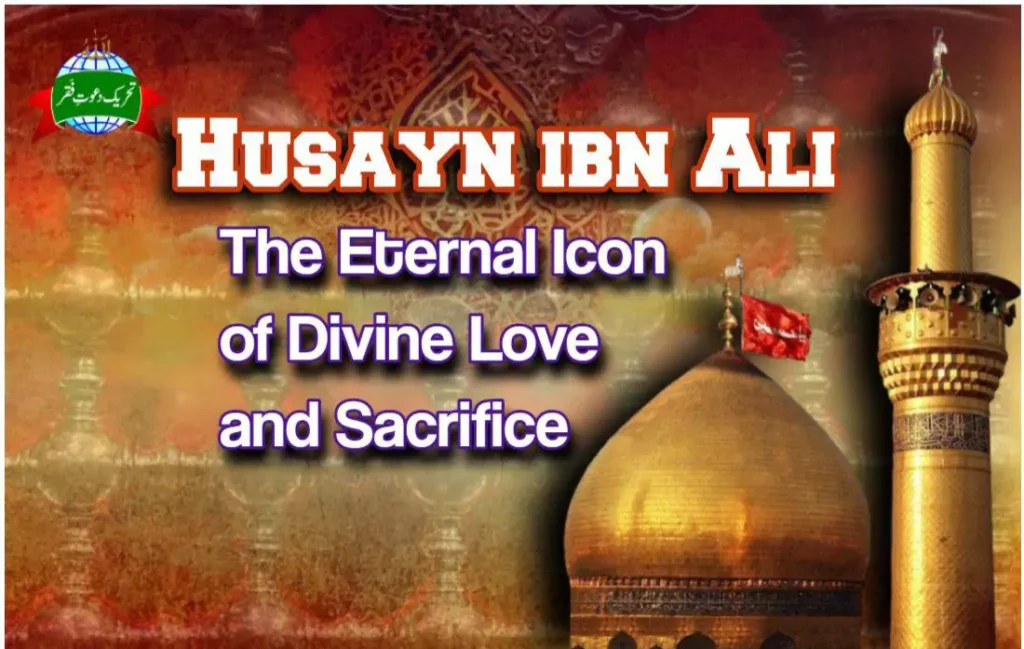
چرچا ہے جہاں میں تیری تسلیم و رضا کا
زیبا ہے لقب تجھ کو امام الشہدا کا
Charcha hai jahan mein teri tasleem o raza ka
Zeba hai laqab tujh ko Imam-ul-Shuhada ka
Explanation: Your surrender and submission to Divine will is renowned in the world; Worthy indeed are you of the title ‘Leader of the Martyrs’.
Imam Hussain (RA) is the Imam of submission and surrender to the Divine will, because the sacrifice he gave in the path of Allah and the example he set of unwavering surrender can never be matched until the end of time. The scorching sands of Karbala still tremble at the sacrifices made and the blood shed there.
A massive army of 22,000 was deployed against a group of just 72 souls, a caravan that neither set out to fight nor carried weapons of war, a group that included children, the elderly, and the sick. They were kept thirsty for three days in the searing heat of the desert. They were deceitfully summoned to Kufa, only to have their path back blocked and were pressured to pledge allegiance to a tyrant like Yazid. Imam Hussain (RA) witnessed the martyrdom of his entire family and companions with his own blessed eyes. Countless salutations upon Sayyid al-Shuhada, Imam Hussain (RA)!
Sultan-ul-Arifeen’s View
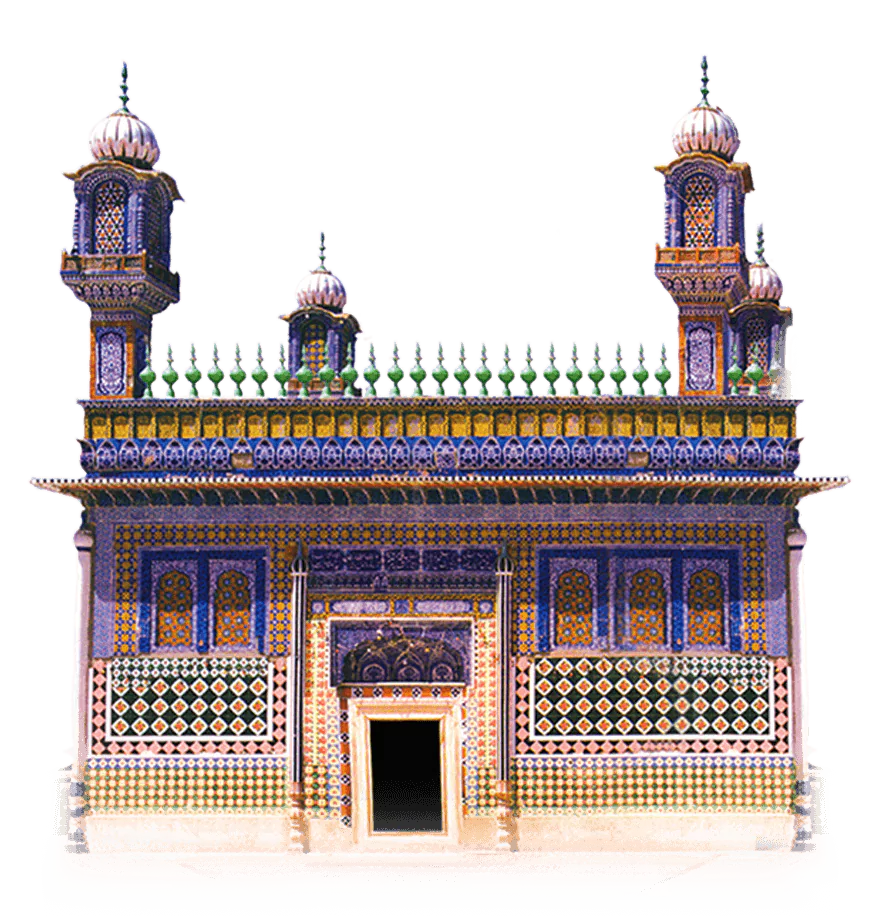
Sultan ul Arifeen, Sultan Bahoo (RA), beautifully expresses the greatness of Imam Hussain (RA) in his Punjabi poetry:
عاشق سوئی حقیقی جیہڑا، قتل معشوق دے منے ھوُ
عشق نہ چھوڑے مکھ نہ موڑے، توڑے سَے تلواراں کھنے ھوُ
جت ول دیکھے راز ماہی دے، لگے اوسے بنھے ھوُ
سچا عشق حسین ابنِ علیؓ دا باھوؒ، سر دیوے راز نہ بھنے ھوُ
Aashiq soyi haqeeqi jehra, qatl mashooq de manne Hoo
Ishq na chhore, mukh na more, tore se talwaraan khanne Hoo
Jitt wal dekhay raaz maahi de, lagay osay banhay Hoo
Sachha ishq Hussain Ibn-e-Ali da Bahoo, sir dewe raaz na bhanay Hoo
Sultan-ul-Ashiqeen’s View
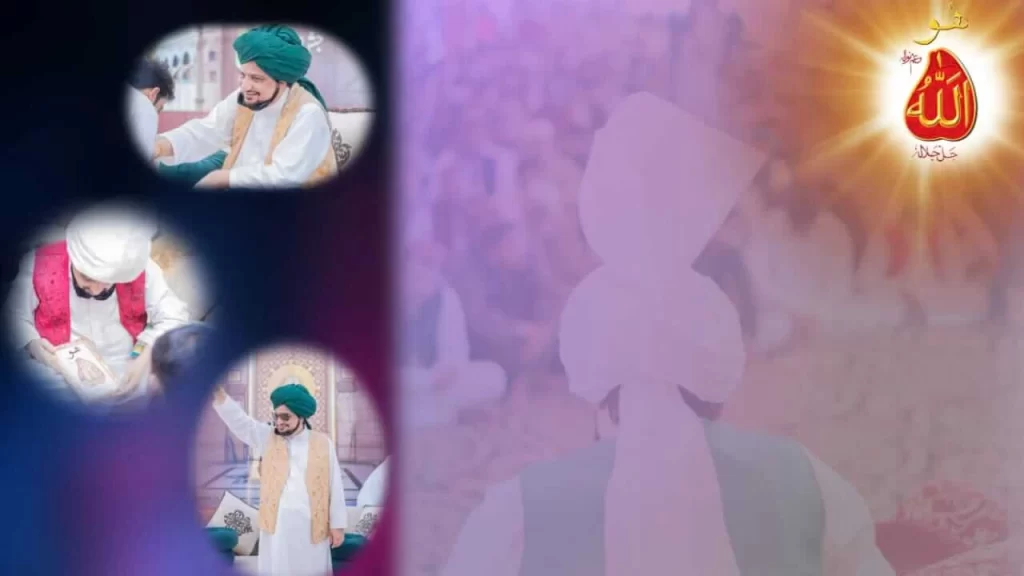
Sultan-ul-Ashiqeen Sultan Mohammad Najib-ur-Rehman writes in his blessed book “Sayyid al-Shuhada Hazrat Imam Hussain (RA) and Yazidiyyat” while explaining these verses:
Imam Hussain (RA) was the Imam of his time, the Universal Divine Man (Insan-e-Kamil) of that era, and held the station of the Vicegerent of the Holy Prophet. The Universal Divine Man can never pledge allegiance to anyone. The tongue of Universal Divine Man is the tongue of “Kun” (the Divine command ‘Be’). Had he pointed to the River Euphrates, it would have flowed toward the tents; had he gestured to the sky, rain would have poured down; had he signalled to the sands of Karbala, a storm would have risen and drowned the army of Yazid. But on one side was all this power and on the other, the will of Allah, which decreed that the confrontation must be like that of ordinary humans. Hence, he did not use any spiritual powers. He bowed his head in complete submission to the will of Allah.
Sultan-ul-Arifeen Sultan Bahoo alludes to this very point that a true lover is the one who accepts to be slain at the hands of the Beloved (Allah), and despite all hardships and trials, never turns away from the path of Divine love, nor lets his steps falter on the way of submission and contentment, even if hundreds of swords pierce his body. The true principle of love is to surrender completely before the will of the Beloved.
He (Sultan Bahoo RA) says: “In the battlefield of love, there is none like Imam Hussain (RA), who gave his life but never revealed the secret of his Beloved.” (From: Sayyid al-Shuhada Hazrat Imam Hussain (RA) and Yazidiyyat)
Surrender and Submission and Self at Peace
When a lover of Allah accepts Divine will and surrenders his body, soul, and wealth entirely in the path of Allah. When he breaks all idols of selfish desires and becomes inwardly empty, then the Essence of Allah manifests within his being. The seeker reaches a station where he is pleased with Allah, and Allah is pleased with him. This is the point at which the seeker’s self (nafs) transitions from the inciting self to repenting self to inspiring self to the self at peace.
Allah Almighty says in the Holy Qur’an:
یٰۤاَیَّتُهَا النَّفْسُ الْمُطْمَىِٕنَّةُۗۖ ارْجِعِیْۤ اِلٰی رَبِّكِ رَاضِیَةً مَّرْضِیَّةًۚ
Meaning: O contented (pleased) self! Return to your Lord in such a state that you are both the aspirant to, and the aspired of, His pleasure (i.e., you seek His pleasure and He seeks yours). (89: 27, 28)
The Station of Ridha
The station of Ridha (Divine contentment) is one of the highest stations in the path of Faqr. It is only after attaining this station that a seeker gains access to the two ultimate inner stations: the vision of Allah and the presence in Mohammadan Assembly. The vision of Allah is granted to those who bow their heads in submission before the will of Allah.
As also stated in the Holy Qur’an:
وَ مَنْ اَحْسَنُ دِیْنًا مِّمَّنْ اَسْلَمَ وَجْهَهٗ لِلّٰهِ وَ هُوَ مُحْسِنٌ
Meaning: And with regard to adopting the Din (Religion), who can be better than the one who submits his whole being entirely to Allah. And he is Mohsin (the one who reaches the station of Ehsan i.e. attains Divine vision (4: 125)
And in another verse, it is said:
بَلٰی ۗ مَنْ اَسْلَمَ وَجْهَهٗ لِلّٰهِ وَ هُوَ مُحْسِنٌ فَلَهٗۤ اَجْرُهٗ عِنْدَ رَبِّهٖ ۪ وَ لَا خَوْفٌ عَلَیْهِمْ وَ لَا هُمْ یَحْزَنُوْنَ۠
Meaning: Yes, of course, he who submits his face to Allah (i.e., consigns himself to Allah) and becomes a man of excellence in piety will find his reward with his Lord. Such people will neither fear anything nor grieve. (2: 112)
Shaikh Abdul Qadir Jilani’s View
Ghaus-ul-Azam Shaikh Abdul Qadir Jilani (RA) says:
The one who accepts Allah’s decree with contentment and remains patient, he receives abundant Divine assistance in this world and countless blessings in the Hereafter. (Al-Fath ar-Rabbani)
Concluding Thoughts
Dear Readers, attaining the station of surrender and submission is only possible through sacrificing the desires of the self and its purification. And for the purification of the self, the guidance of a Perfect Spiritual Guide is essential.
In the present era, Sultan-ul-Ashiqeen Sultan Mohammad Najib-ur-Rehman holds the exalted rank of Universal Divine Man. On the very first day of taking bayah, he blesses the seeker with the invocation and contemplation of Ism-e-Allah Zaat. Through this sacred practice, the seeker progresses spiritually and passes through the various stages of the self. The self transitions from inciting self to repenting self to inspiring self and finally to the self at peace.
Sultan-ul-Ashiqeen Sultan Mohammad Najib-ur-Rehman states:
“Through the contemplation of Ism-e-Allah Zaat under the guidance of a Perfect Spiritual Guide, the seeker of Allah develops such a deep habit of surrender and contentment that he begins to feel love for every command and action of Allah.” (Teachings and Sayings of Sultan-ul-Ashiqeen)
To reach the station of Ridha (contentment) two things are necessary:
- Striving to understand and recognise the will of the Perfect Spiritual Guide, and
- Once recognised, to remain firm upon it, striving against the self, the world, and Satan.
This is the path of Divine love and only true lovers can walk it. True lovers are filled with the spirit of self-sacrifice. They cherish both the Majesty (Jalal) and Beauty (Jamal) of the Beloved. The Murshid makes the seeker pass through states of contraction and expansion (Qabz o Bast), and tests them with both Majesty and Beauty.
Through spiritual endeavours, the seeker is granted spiritual vision. This path is not easy, only those with true determination succeed in it. And true success lies in earning the pleasure of the Murshid.
The pleasure of the Murshid is the banner of success, under which the seeker reaches Mohammadan Assembly and attains Divine vision.
Note
This is an English translation of Urdu blog قربانی اور تسلیم و رضا that appeared in the April 2025 issue of Monthly Sultan-ul-Faqr Magazine. Mrs Fatima Burhan Sarwari Qadri authored the original article. Zahid Anjum Siddiqui has translated it in English.
How useful was this post?
Click on a star to rate it!
Average rating 4.6 / 5. Vote count: 11
No votes so far! Be the first to rate this post.

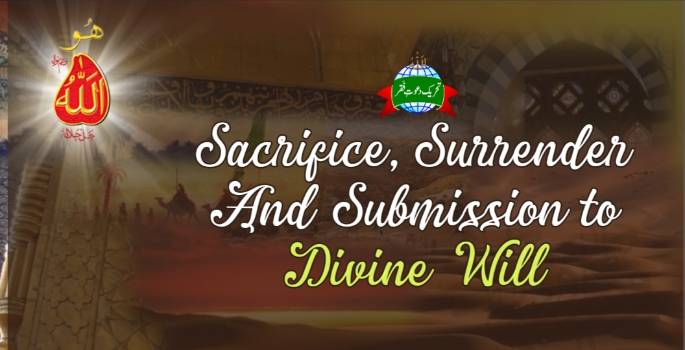



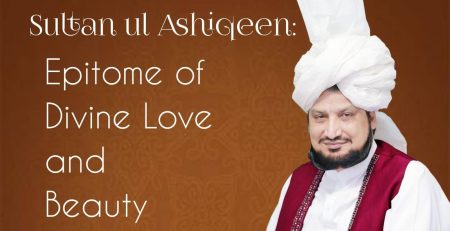
Leave a Reply